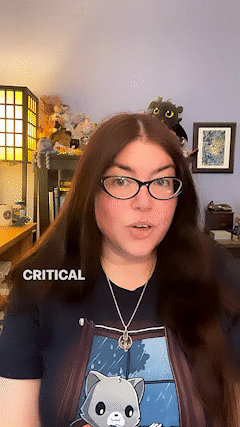‘Guys don’t blush that much.’
The above is a comment I received from a peer on a 2017 Romance anthology, Story Quester. It’s what started me on the road to what I write today—Boys Love. Also known as M/M Romance or Achillean Romance Fiction.
So why am I talking about it? Because most storytellers hate reviews. They’re considered at best—a necessary evil. And at worst—something to send you into a doom spiral. Especially the critical ones.
But are all critical reviews hate mail? Or can they actually be—gasp—helpful? And how do you separate the helpful from the haters?
Well…
In 2017 I was part of a Romance anthology and one of the requirements of participation was to take part in a peer critique. Essentially, we all partnered up and critiqued our partner’s story. I’d never been part of something like that before, so I was super excited.
The partners were assigned at random, so before that anthology, I’d never met my partner. Nor was I familiar with her work. However, the first thing I learned reading her work—BDSM fiction was 100% not the genre for me. I did not enjoy a second of that story.
That being said, there was nothing actually wrong with the story itself. It just wasn’t my cup of…coffee. As such, I put a lot of time and care into my peer critique.
Her, on the other hand, not so much… 😒 Let me explain.
This was before I switched to writing Boys Love—as in stories with Male/Male pairings. So my novella in the anthology (along with everyone else’s) featured a standard Romance pair. However, my story had a male lead but with a female love interest.
This is sorta important.
Now because of what type of stories she wrote, my peer was expecting my male lead to be the dominant Alpha Male archetype. I don’t write that. I’ve never written that. And I have no intention to write that. It’s just not me.
That’s not to say there’s a problem with that type of character. Or the readers who enjoy that fiction. It’s just not what I create.
But instead of realizing that I’d intentionally written him that way in the first page or so, my partner spent the entirety of the story—35,000 words worth!—complaining he blushed too much.
Seriously, I am not joking. The woman highlighted every single one. It was ridiculous. In her entire critique, she offered nothing helpful or constructive to improve my storytelling or further myself as a writer.
Or did she? 🤔
Because here’s the thing, Story Quester. I was salty about what this storyteller had said about my male lead for nearly 2 years until I thought about it a little more. And I realized some hard truths:
- The majority of “Traditional Romance” readers want a particular kind of male lead. However, that wasn’t what I wanted to write.
- Trying to fight a genre trend so massive is like trying to swim against a tsunami. You’re going to lose and you’re going to drown doing it.
- The characters I liked to write were already beloved character archetypes in another genre category.
So in the end, her seemingly unhelpful criticism of my story was the best thing that ever happened to me as a storyteller.
Now, how do YOU spot the difference between helpful and hateful for yourself when it comes to critiques and reviews?
Well, helpful reviews usually follow the…
“I didn’t like it because…”
“Or the story didn’t work because…”
…format.
Basically, they offer evidence as to why they didn’t like your story. Or how it failed their genre expectations.
Even though that storyteller’s comments seemed unhelpful, what she was really saying was that my story failed her genre expectations.
Haters, on the other hand, will just say it sucked, you sucked, or other entirely unhelpful or intentionally hurtful things to push their social or political agenda.
Basically, they’re using their words as a stick to beat you with. And not cleverly, either.
The important thing is to ignore the haters. To see if you can glean any useful insight to improve your storytelling. And to strengthen the promise you make to readers from those who took the time to actually review your work with a critical eye.
And who knows, Story Quester, that critical critique might just set you on the road to where you were always meant to be as a storyteller. Well until next time, this is your friendly neighborhood storytelling Kat signing off.
Question of the week
What’s the worst review you’ve ever gotten? Drop your answer in the comments.
Responses to “Can Bad Reviews ACTUALLY Be Useful?”
-
I am really inspired with your writing talents as well as with the layout to your weblog. Is this a paid subject or did you modify it your self? Anyway keep up the excellent high quality writing, it is uncommon to look a great blog like this one today.
-
Thank you very much. Yes, I do use a paid theme for my site designed by the fine folks at Studio Press. I also modify it to suit my needs.
-


Leave a Reply